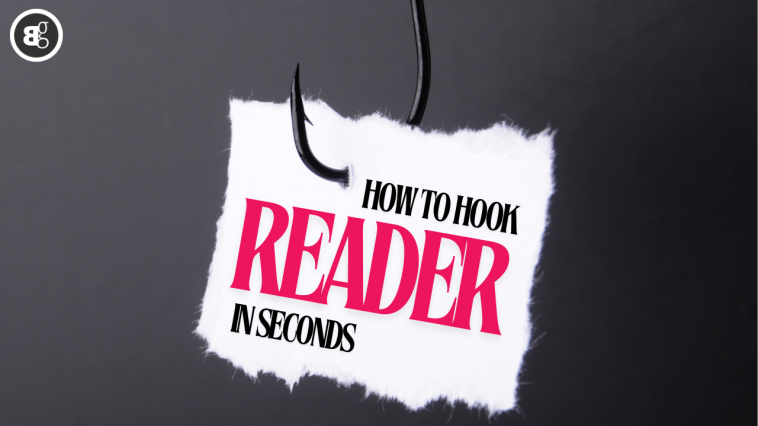You are about to find out a super cool secret that will change how you write forever.
Curious? That’s what a good start to a story does. It’s not magic – it’s how people think.
Today, you will learn seven smart ways to make the first part of your writing really good.
Why is the first part so important?
It’s easy: Lots of things can grab people’s attention. So, you only have a few seconds to catch their eye.
The first part of your writing is like shaking hands, your first look, is your only chance to make people want to read more. Mess this up, and they will quickly go to someone else who knows how to grab attention.
Let’s look at seven smart tricks to hook people right away.
1. Create a Knowledge Gap
Our minds do not like things that are not finished. Use this to help you by saying something that makes people wonder.
For example, “I never expected to find a map of hidden gold in my grandmother’s old room.”
This line immediately raises questions:
- What’s the treasure?
- Why was it in the attic?
Your writing encourages readers to continue filling in this knowledge gap.
Weak opening: “I was cleaning my grandmother’s attic one day.”
Strong opening: “My life was changed forever by the dusty map I found in Grandma’s attic.”
Read More: How To Create Blog Posts Your Target Audience Will Read
2. Use the Zeigarnik Effect
Generally, people are more likely to remember tasks they have not yet completed than those they have already completed. Start with an interrupted action to create tension.
Example: “There was only a few seconds left before the bomb would go off, when…”
You’ve just left readers hanging. They can’t help but read on to find out what happens next.
3. Evoke Emotion
Emotions drive decision-making more than logic. Open with a line that triggers an emotional response.
Example: “I was barely four years old when a tragic situation determined the next 25 years of my life.”
This sentence immediately evokes sympathy and curiosity. Readers will want to know more about this tragic experience.
4. Challenge Assumptions
Our brains love novelty. Start with a statement that contradicts common beliefs to engage readers’ attention.
Example: “My best day began with a funeral.”
This opening challenges the assumption that funerals are always sad occasions, making readers curious about the unexpected twist.
5. Use Sensory Language
Our brains process sensory information quickly and vividly. Think of it like fishing. You need to hook them fast. Give them a feeling with your words.
For example, “The smell of burned wood filled the air, contrasting sharply with falling snow.”.”
This paints a picture in the reader’s mind, using smells and feelings.
6. Employ the Principle of Commitment
When folks do one small thing, they are more likely to do bigger things after. So, ask a question or say something that makes people think “Yes, that’s true.”
Example: “Do you ever wonder what your dog is thinking?”
Most pet owners will mentally say “yes,” committing themselves to reading further to find the answer.
Read more: Headline Hacks: Craft Click-Worthy Titles That Scream “Read Me!”
7. Use the Shock Factor
Our brains are made to notice things that are new or scary. Start with something weird or shocking to make people pay attention.
For example: “I died for the first time on my twenty-fifth birthday.”
This start is so strange that people will want to know more. How can someone die twice? What happened? Now you know these tricks, let’s fix a wrong idea:
A good start doesn’t need to be smart or fancy. It just needs to work.
Many writers try hard to make the perfect, pretty start. But keep in mind, that your objective is to persuade readers to read the following line, then the one after that, and so on.
Here’s how to put these tricks into practice
- Think hard about how you start your story.
- Use tricky words to grab people’s attention.
- Ask your friends what they like.
- Don’t be scared to change your start even after you finish.
- Look at books and see how they start.
- Learn to make good starts by trying and trying again.
Wrapping Up
These smart writing tricks aren’t about fooling your readers.
It’s about being kind to their time and showing them your writing is worth reading right away.
So, next time you start writing, think about these seven tips. Start with a sentence that makes people curious, feel something, think differently, or is surprising. Grab them from the very start, and they’ll want to read more.





